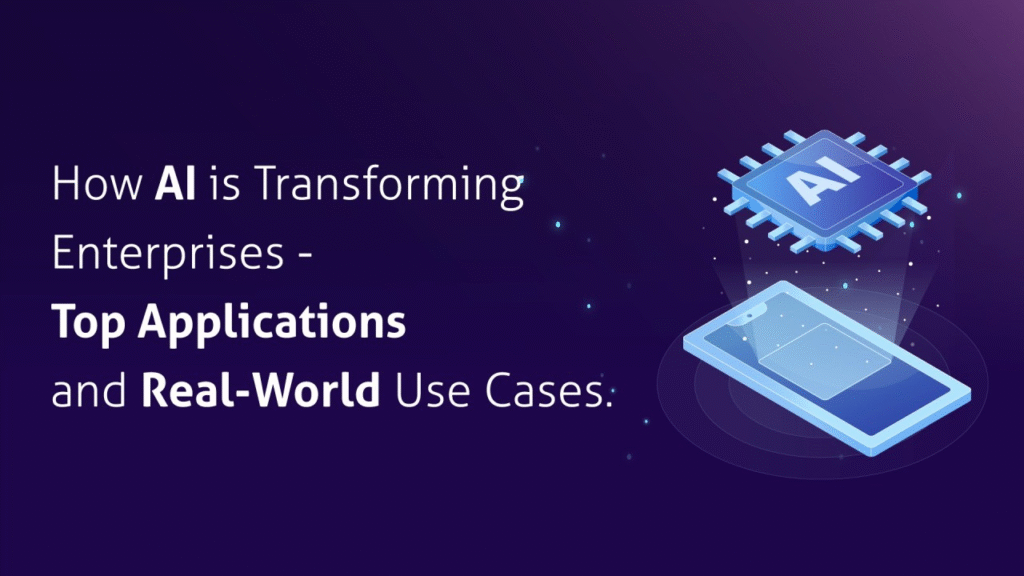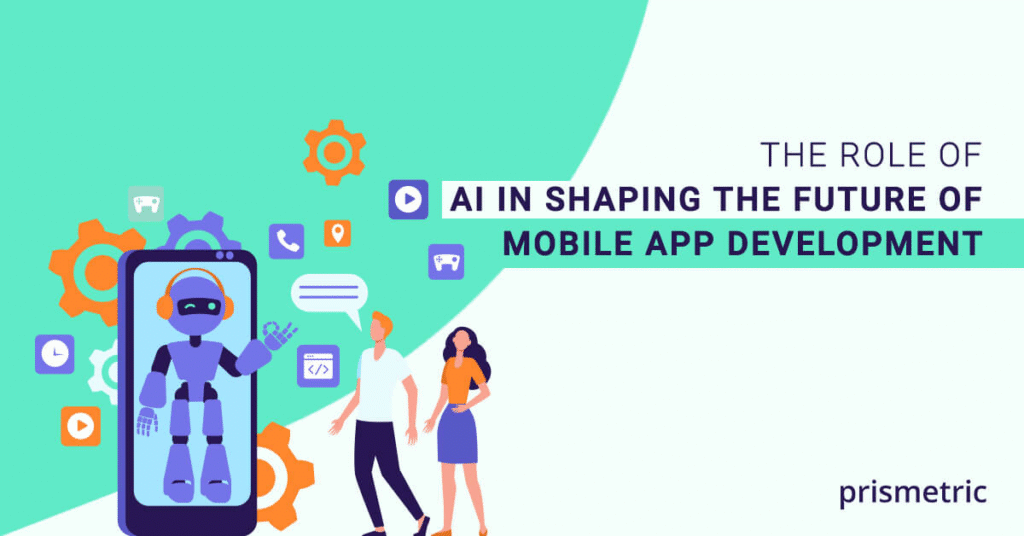The landscape of application development is experiencing a revolutionary shift as artificial intelligence becomes deeply integrated into every stage of the development lifecycle. AI transforming app development is not just a trend—it’s a fundamental reimagining of how we conceive, build, and deploy applications. From automated code generation to intelligent user experiences, AI is reshaping the entire development ecosystem.
The Current State of AI in App Development
Today’s development environment is vastly different from what it was just five years ago. Developers now have access to AI-powered tools that can write code, debug applications, optimize performance, and even predict user behavior. This transformation is happening across multiple dimensions, affecting everything from the initial design phase to post-deployment maintenance.
The integration of AI into app development workflows has reduced development time by up to 40% in many organizations, while simultaneously improving code quality and reducing bugs. This dramatic improvement stems from AI’s ability to handle repetitive tasks, identify patterns, and provide intelligent suggestions throughout the development process.
Key Areas Where AI is Transforming App Development

Automated Code Generation and Completion
One of the most visible ways AI transforming app development manifests is through intelligent code generation. Modern AI coding assistants can understand context, generate entire functions, and even create complete applications based on natural language descriptions. These tools don’t just autocomplete code—they understand the developer’s intent and suggest entire architectural patterns.
Developers can now describe functionality in plain English and watch as AI generates corresponding code in multiple programming languages. This capability has democratized app development, allowing individuals with limited coding experience to create functional applications while enabling experienced developers to focus on high-level architecture and complex problem-solving.
Intelligent Testing and Quality Assurance
AI has revolutionized the testing landscape by introducing intelligent test case generation, automated bug detection, and predictive quality assessment. Machine learning algorithms can analyze code patterns to identify potential vulnerabilities before they become critical issues. This proactive approach to quality assurance means fewer bugs reach production environments.
Automated testing frameworks powered by AI can generate comprehensive test suites that cover edge cases human testers might miss. These systems learn from previous testing cycles, continuously improving their ability to identify potential problems and ensure application reliability.
Enhanced User Experience Through Personalization
Applications powered by AI can deliver highly personalized experiences that adapt to individual user preferences and behaviors. Machine learning algorithms analyze user interactions to optimize interfaces, predict user needs, and provide relevant content recommendations. This level of personalization was previously impossible to achieve at scale.
AI-driven user experience optimization extends beyond simple recommendations. Modern applications can adjust their entire interface based on user behavior patterns, accessibility needs, and contextual factors like time of day or device type.
Performance Optimization and Resource Management
AI transforming app development includes sophisticated performance optimization capabilities. Intelligent systems can monitor application performance in real-time, identify bottlenecks, and automatically optimize resource allocation. This results in faster, more efficient applications that provide better user experiences while reducing operational costs.
Machine learning models can predict traffic patterns, automatically scale resources, and optimize database queries without human intervention. This level of automated optimization ensures applications remain performant even as user bases grow and usage patterns change.
Development Lifecycle Transformation

Planning and Design Phase
AI tools now assist in the earliest stages of app development by analyzing market trends, user feedback, and competitive landscapes to inform feature prioritization and design decisions. Natural language processing capabilities enable these systems to extract insights from user reviews, support tickets, and social media conversations.
Design tools powered by AI can generate multiple interface variations, test them with simulated users, and recommend optimal layouts based on usability principles and user behavior data. This accelerates the design iteration process and results in more user-friendly applications.
Development and Implementation
During the coding phase, AI transforming app development is most evident through intelligent development environments that provide real-time code suggestions, identify potential security vulnerabilities, and ensure adherence to best practices. These tools act as virtual pair programmers, offering guidance and catching errors before they become problems.
Modern integrated development environments leverage AI to provide contextual help, suggest refactoring opportunities, and automatically generate documentation. This comprehensive support system enables developers to write better code more efficiently.
Deployment and Maintenance
AI-powered deployment systems can automatically configure environments, manage dependencies, and monitor application health post-deployment. Intelligent monitoring systems can predict and prevent failures before they impact users, significantly improving application reliability and user satisfaction.
Automated maintenance tasks powered by AI include security patching, performance tuning, and compatibility updates. This reduces the ongoing maintenance burden on development teams while ensuring applications remain secure and up-to-date.
Industry-Specific Applications
Different industries are experiencing unique benefits from AI transforming app development. Healthcare applications leverage AI for diagnostic assistance and patient monitoring, while financial applications use machine learning for fraud detection and risk assessment. E-commerce platforms utilize AI for recommendation engines and inventory management.
Educational applications powered by AI can adapt to individual learning styles and provide personalized instruction paths. Gaming applications use AI for procedural content generation and intelligent non-player character behavior. Each industry presents unique opportunities for AI integration that enhance both functionality and user experience.
Challenges and Considerations

While AI transforming app development offers tremendous benefits, it also presents challenges that development teams must address. Data privacy concerns, algorithmic bias, and the need for specialized skills are significant considerations that require careful planning and implementation.
The complexity of AI systems can introduce new types of bugs and failure modes that traditional testing approaches may not catch. Development teams must adopt new methodologies and tools specifically designed for AI-powered applications.
Future Outlook and Emerging Trends
The future of AI transforming app development points toward even more sophisticated integration of artificial intelligence into development workflows. Emerging trends include fully autonomous development systems, advanced natural language programming interfaces, and AI-powered application evolution that adapts applications based on real-world usage patterns.
As AI technology continues to advance, we can expect to see the emergence of development environments that require minimal human intervention, applications that self-improve over time, and development processes that are accessible to non-technical users through natural language interfaces.
The transformation of app development through AI represents a fundamental shift in how we approach software creation. As these technologies mature, they will continue to democratize app development while enabling the creation of more sophisticated, intelligent, and user-friendly applications. The organizations that embrace this transformation will be best positioned to succeed in an increasingly competitive digital landscape.
(FAQs) About AI Transforming App Development
Q1: How does AI reduce app development time and costs?
AI reduces development time by automating repetitive coding tasks, generating boilerplate code, and providing intelligent suggestions that help developers work more efficiently. It also reduces costs by catching bugs early, optimizing performance automatically, and reducing the need for extensive manual testing.
Q2: What programming languages and frameworks work best with AI development tools?
Most AI development tools support popular languages like Python, JavaScript, Java, and C#. Frameworks like TensorFlow, PyTorch, and cloud-based AI services from providers like Google, AWS, and Microsoft integrate seamlessly with modern development stacks.
Q3: Can AI completely replace human developers in app development?
While AI can automate many development tasks, human developers remain essential for creative problem-solving, architectural decisions, ethical considerations, and complex business logic implementation. AI serves as a powerful assistant rather than a replacement.
Q4: What are the main security concerns when using AI in app development?
Key security concerns include data privacy in AI training, potential vulnerabilities in AI-generated code, algorithmic bias, and the need for secure AI model deployment. Proper security auditing and testing of AI-powered features are essential.
Q5: How can small development teams or startups benefit from AI in app development?
Small teams can leverage AI tools to compete with larger organizations by using automated code generation, intelligent testing tools, and AI-powered design assistance. These tools help smaller teams achieve higher productivity and build more sophisticated applications with limited resources.
For More Information Visit Bratish Magazine


















































































